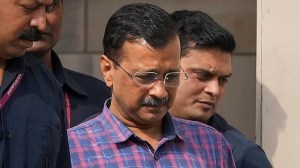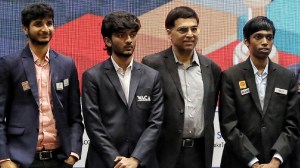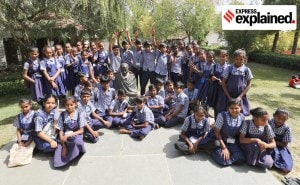- India
- International
In Kolhapur, citizen groups battle price rise with own mutton shop, trigger shutdown by retailers
In November, when the retail price rose to Rs 580 per kg, the Kolhapur Mutton Darvadh Virodhi Kruti Samiti, an umbrella body, set up the Samyukta Rajarampuri Mutton Shop that sold the meat at Rs 480 — and continues to do so.
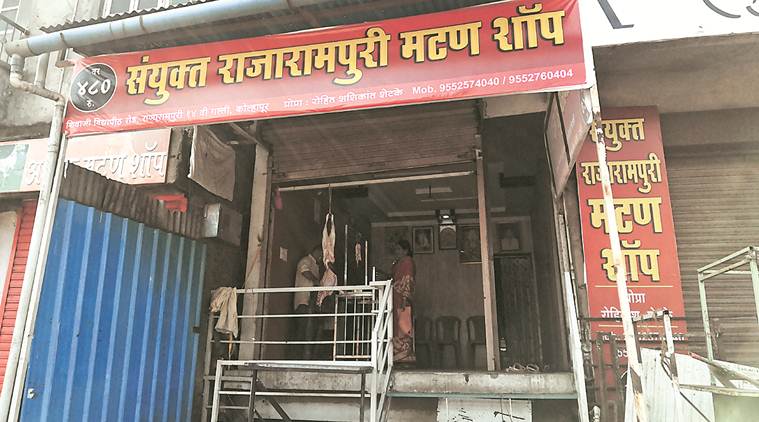 Citizens’ shop offers mutton at Rs 480 per kg. (Express)
Citizens’ shop offers mutton at Rs 480 per kg. (Express)
THE SURGE in food inflation across the country has played out in a peculiar manner in Maharashtra’s Kolhapur, where citizens’ groups have opened a shop to sell mutton at lower prices as part of their agitation against the price rise.
In November, when the retail price rose to Rs 580 per kg, the Kolhapur Mutton Darvadh Virodhi Kruti Samiti, an umbrella body, set up the Samyukta Rajarampuri Mutton Shop that sold the meat at Rs 480 — and continues to do so.
“The initial plan was to open 4-5 shops on our own, converting commercial spaces into mutton shops, as the sellers were on a strike for two weeks against the agitation. We did not want to cause inconvenience to the public,” said Dilip Desai, a member of the Samiti, which set up the shop on November 24.
Shashikant Shetke, who manages the Rajarampuri shop, says business has been brisk with sales of over 10 goats on weekends and 2-3 on weekdays. “We want to keep the shop open to provide residents access to mutton priced lower than other retailers,” he said.
Shetke, who is also part of the Samiti, says he has managed to maintain lower prices by keeping leaner margins and buying goats at a time when the prices were cheaper.

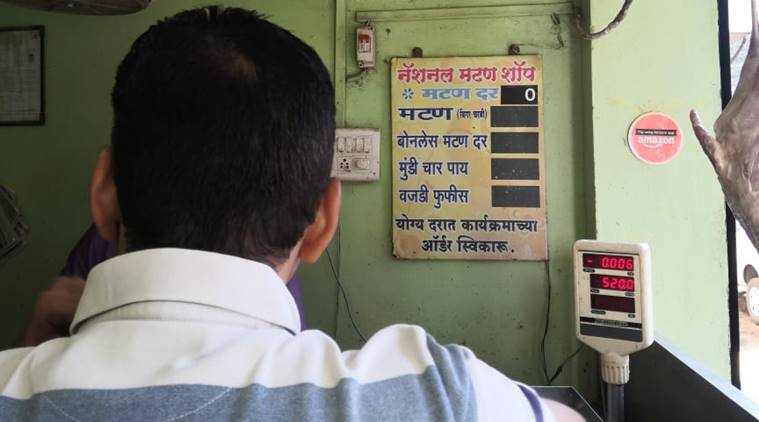 A customer at a mutton shop in Kolhapur.
A customer at a mutton shop in Kolhapur.
Kolhapur is famous for mutton delicacies like tambda rassa, pandhra rassa (mutton broths), and mutton thali. And the tussle over prices began over two months ago when residents of Kasba Bawda in Kolhapur put up hoardings that read: “Aamcha tharlay, mutton nadhicya pali kada (We have decided, we will buy mutton from across the river).”
The call was to buy mutton from across the city’s Panchganga river, where mutton is sold in smaller villages at Rs 400 per kg. This line caught on, including with members of citizens’ groups formed in 2013, which had earlier persuaded residents to not pay a toll levied by an infrastructure authority while entering the city.
“We began receiving petitions from buyers and sellers. At one point, we realised that the situation could lead to a law and order problem, so a panel was formed to mediate,” said Kolhapur Collector, Daulat Desai. Desai, along with civic officials and officials of the state Food and Drug Administration (FDA), held meetings with both sides.
In December, the price was set at Rs 480 per kg. “But this price was causing losses to us. Hence, we decided to keep our shops shut,” said Vijay Kamble, district president of the Kolhapur Khatik Samaj, which represents the community that runs most of the mutton shops in the city.
Samaj members say the bandh was also called against action by FDA and civic officials citing violations by some shops, which they alleged was a “pressure tactic”.
Over 150 shops remained shut across the city for two weeks, opening only last Thursday at a price agreed upon by the administration and sellers — Rs 520 per kg with assurance of quality control and adherence to civic and FDA guidelines.
The impact of the shutdown was also felt in hotels and restaurants, which had to source the meat from outside. However, members of the Khatik community say they are being “unfairly targeted” due to multiple factors. One of the factors, they say, is that buyers from neighbouring southern Indian states have been buying goat and sheep herds at higher prices.
The floods last year in Kolhapur, and an increase in demand during the Lok Sabha and state elections, have led to less supply, too, they say. Another factor is the increase in export of meat to Middle Eastern countries.
According to the Livestock Census 2019, the goat population in the country is 148.88 million — an increase of 10.14 per cent from 2012. The Agricultural and Processed Food Products Export Development Authority states India is the largest exporter of sheep and goat meat to the world totalling 18,425 million tones worth Rs 790.65 crore during 2018-19.
“This has led to rise in prices demanded by the farmers who sell their herd. The comparison with rural areas, where mutton is sold at a lower price, is also not correct as the quality of meat differs. Kolhapur is known for its mutton delicacies for decades and we have ensured that the quality is maintained,” said Kamble of the Kolhapur Khatik Samaj.
“Apart from the cost of the goat, which comes around Rs 5,000-6,000, we also have to spend on fees to the municipal corporation, veterinarians, payment for godowns, transport, staff and maintenance of shops. This leaves us with barely any profit,” said Wasim Khatik, who has now begun selling chicken at the shop he took over from his father.
Kamble says most sellers — a majority from SC communities and over 20 per cent from Muslim OBCs — remain socio-economically poor, without access to basic facilities including health and education, and are solely dependent on their mutton shops.
According to data released by the National Statistical Office (NSO) last week, retail inflation rose sharply to a five-and-a-half year high of 7.35 per cent in December 2019, primarily on account of rising food prices. Food items make up almost 46 per cent per cent of the retail inflation basket. The 14 per cent surge in food inflation last month was driven by vegetables (60%), pulses (15%) and meat and fish (9.6%).
At the Rajarampuri shop, meanwhile, Shetke admits he is finding it difficult to manage along with his other businesses. “We will arrive at a decision soon on if we can keep it open for only a few days of the week. We are also planning on selling the meat at Rs 500 now as many are suspicious of the price difference with other retailers,” he said.
Apr 23: Latest News
- 01
- 02
- 03
- 04
- 05
















